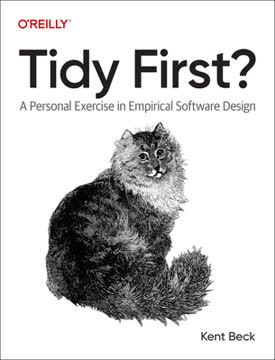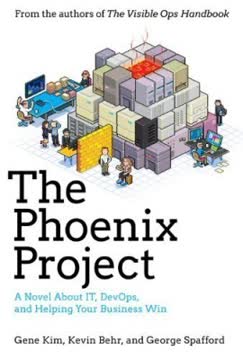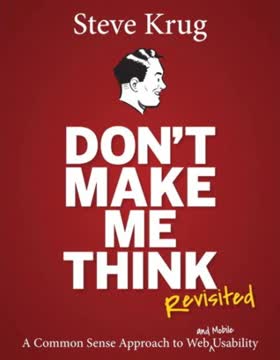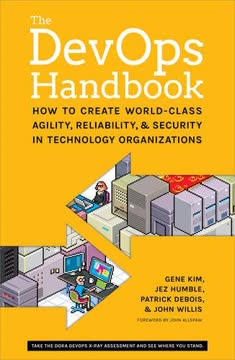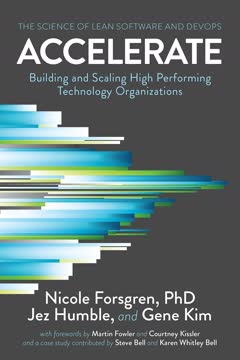重点摘要
1. 远程工作是未来:技术使其成为可能并带来益处
技术已经到位;与任何地方、任何时间的人沟通和协作从未如此容易。
技术进步已经改变了工作场所,实现了无缝的远程协作。视频会议、屏幕共享和项目管理软件等工具消除了远程工作的许多障碍。这一转变带来了诸多好处:
- 减少通勤时间和成本
- 获取全球人才库
- 由于办公室干扰减少而提高生产力
- 改善员工的工作与生活平衡
环境影响也很显著,减少通勤导致碳排放量降低。公司可以节省办公空间和相关费用,而员工则享受在任何地方工作的灵活性。
2. 接受异步协作和灵活的时间安排
分布式团队的重大转变是从同步协作转向异步协作。
异步沟通允许团队成员按照自己的时间表工作,提高生产力并减少干扰。这种方法:
- 使人们在最具生产力的时间工作
- 适应不同的时区和个人承诺
- 鼓励深思熟虑、精心制作的回应
为了促进异步工作:
- 使用Basecamp、Slack或Asana等工具进行项目管理和沟通
- 设定明确的响应时间和可用性期望
- 记录决策和流程以便于参考
接受灵活的时间安排,允许员工在他们最具生产力的时间工作,无论是清晨还是深夜。
3. 关注工作,而不是椅子:衡量产出,而不是工时
当你无法整天看到某人时,你唯一能评估的就是工作。
以结果为导向的管理对于远程工作的成功至关重要。与其监控工作时间或在桌前花费的时间,不如关注:
- 交付物的质量和及时性
- 达成商定的目标和任务
- 对团队项目和公司整体成功的贡献
实施明确的绩效指标和定期检查,以确保一致性和进展。这种方法:
- 鼓励自主性和自我激励
- 减少微观管理并增加信任
- 允许对远程和办公室员工进行公平评估
4. 建立信任和赋权的文化以实现远程成功
如果你不能让员工在家工作,因为你担心他们在没有监督的情况下会偷懒,那么你是一个保姆,而不是经理。
信任是成功的基础。为了建立信任文化:
- 雇佣能够独立工作的自我激励型员工
- 提供明确的期望和目标
- 赋予员工决策权并让他们对工作负责
- 作为一个团队庆祝成功并从失败中学习
促进开放的沟通和透明度:
- 定期的团队会议和一对一交流
- 共享的项目管理工具和文档
- 鼓励提问和反馈
记住,信任是双向的;经理也必须可靠并支持他们的远程团队。
5. 克服关于远程工作的常见借口和恐惧
魔力和创造力在多元文化中蓬勃发展。
主动解决问题以克服对远程工作的抵制:
- 协作:使用视频会议和数字白板等工具
- 安全:实施强有力的网络安全措施和协议
- 文化:通过虚拟团队建设活动促进联系
- 生产力:关注结果并设定明确的期望
强调远程工作的好处:
- 由于干扰减少而提高生产力
- 获取更广泛的人才库
- 减少办公空间的间接成本
- 提高员工满意度和保留率
从小步开始,例如允许偶尔在家工作,以便逐步过渡并展示成功。
6. 通过远程机会招聘和留住全球最佳人才
世界从未如此小,市场从未如此开放。
全球人才招聘通过远程工作成为可能,使公司能够:
- 获取多样化的技能专业人才
- 基于能力而非位置进行招聘
- 减少对技术中心本地人才的竞争
为了吸引和留住顶尖的远程人才:
- 提供具有竞争力的薪资,无论位置如何
- 提供成长和发展的机会
- 创建强大的远程工作文化和支持系统
- 强调工作与生活的平衡和灵活性
考虑实施“远程优先”的招聘策略,以充分利用全球人才库并创建真正多元化的团队。
7. 创建平衡的远程工作生活方式以避免倦怠
很容易将工作变成你的主要爱好。
建立界限在工作和个人生活之间,以保持身心健康:
- 创建一个独立于生活区的专用工作空间
- 设定并坚持定期的工作时间
- 休息并安排锻炼和社交活动的时间
- 使用不同的设备或账户进行工作和个人用途
鼓励远程团队保持健康的工作与生活平衡:
- 尊重非工作时间和周末
- 鼓励使用假期时间
- 提供心理健康资源和支持
- 作为经理以身作则
定期与团队成员沟通,确保他们不过度工作,并及时解决任何倦怠迹象。
8. 有效的远程管理需要新的技能和实践
经理的工作不是赶猫,而是领导和验证工作。
适应管理风格以适应远程团队:
- 关注结果而不是微观管理日常活动
- 培养虚拟互动的强大沟通技巧
- 学会在没有面对面接触的情况下建立信任和关系
- 熟练掌握远程协作工具和技术
实施有效的远程管理实践:
- 定期与团队成员进行一对一交流
- 设定明确的目标和绩效期望
- 虚拟团队建设活动和社交互动
- 透明的决策和信息共享
投资于经理培训,以发展这些新技能并适应远程领导的挑战。
9. 远程工作可以提高生产力和工作满意度
自由即奴役。
矛盾的是,远程工作可以通过以下方式提高生产力和满意度:
- 消除通勤时间和办公室干扰
- 允许员工在最具生产力的时间工作
- 提供更好的工作与生活平衡并减少压力
为了最大化这些好处:
- 设定明确的目标和截止日期
- 提供远程工作所需的工具和资源
- 鼓励定期休息和休假以防止倦怠
- 认可和奖励生产力和成就
通过定期调查和反馈会议监控员工满意度,及时解决任何问题以保持高士气和参与度。
10. 向开源项目学习以改进远程协作
与普通的商业或消费者软件包相比,所有这些开源示例都更加复杂,涉及更多的人参与其生产。
开源项目为远程协作提供了宝贵的经验:
- 异步沟通和决策
- 清晰的文档和版本控制
- 基于能力的贡献和认可
- 全球多样化团队共同努力实现共同目标
将开源原则应用于远程工作:
- 使用版本控制系统进行文档和代码管理
- 实施透明的决策过程
- 鼓励所有团队成员的贡献
- 培养持续改进和学习的文化
通过采用这些实践,公司可以改进协作,增加创新,并建立更强大、更有韧性的远程团队。
最后更新日期:
FAQ
What's "Remote: Office Not Required" about?
- Overview: "Remote: Office Not Required" by Jason Fried explores the concept of remote work and its growing importance in the modern workforce.
- Main Argument: The book argues that remote work is not only feasible but also beneficial for both employees and employers, offering increased productivity and job satisfaction.
- Structure: It provides practical advice on how to implement remote work successfully, addressing common concerns and offering solutions.
- Authors' Experience: The insights are drawn from the authors' experiences at 37signals, a company that has successfully embraced remote work.
Why should I read "Remote: Office Not Required"?
- Changing Work Landscape: The book is essential for understanding the shift towards remote work and how it can be leveraged for better work-life balance.
- Practical Advice: It offers actionable strategies for both employees and employers to make remote work effective.
- Debunking Myths: The book addresses and dispels common myths and excuses against remote work, providing a fresh perspective.
- Future-Proofing: Reading it prepares you for the future of work, which is increasingly moving away from traditional office settings.
What are the key takeaways of "Remote: Office Not Required"?
- Remote Work Benefits: Remote work can lead to increased productivity, better work-life balance, and access to a global talent pool.
- Overcoming Excuses: The book provides counterarguments to common excuses against remote work, such as concerns about productivity and security.
- Tools and Techniques: It highlights essential tools and techniques for effective remote collaboration and communication.
- Cultural Shift: Emphasizes the need for a cultural shift in how we perceive work, focusing on results rather than physical presence.
What are the best quotes from "Remote: Office Not Required" and what do they mean?
- "Why work doesn’t happen at work": This quote highlights the irony that offices, meant for work, often become places of constant interruption, reducing productivity.
- "Stop commuting your life away": It underscores the time and energy wasted in commuting, advocating for remote work as a solution.
- "The new luxury is the luxury of freedom and time": This quote emphasizes the value of having control over one's schedule and location, which remote work provides.
- "The work is what matters": It shifts the focus from where and when work is done to the quality and results of the work itself.
How does "Remote: Office Not Required" address common excuses against remote work?
- Visibility Concerns: The book argues that productivity can be measured by output rather than physical presence, debunking the need for constant supervision.
- Distractions at Home: It suggests that remote workers can control their environment and choose spaces that minimize distractions.
- Security Issues: The authors provide practical security measures that can be implemented to ensure data safety while working remotely.
- Cultural Concerns: It explains how a strong company culture can be maintained through clear communication and shared values, even remotely.
What practical advice does "Remote: Office Not Required" offer for remote collaboration?
- Overlap Hours: The book recommends having at least four hours of overlap in work schedules to facilitate real-time collaboration.
- Use of Technology: It emphasizes the importance of using tools like screen sharing and video conferencing to maintain effective communication.
- Open Communication: Encourages keeping all work-related information accessible to everyone to avoid bottlenecks and delays.
- Virtual Water Cooler: Suggests creating informal online spaces for social interaction to build team cohesion.
How does "Remote: Office Not Required" suggest managing remote workers?
- Focus on Output: Managers should evaluate employees based on their work output rather than their physical presence.
- Regular Check-ins: The book advises regular one-on-one check-ins to maintain communication and address any issues promptly.
- Empowerment: Encourages giving employees the autonomy to make decisions and access necessary resources without constant oversight.
- Avoid Overwork: Managers should be vigilant about employees overworking and ensure a healthy work-life balance is maintained.
What does "Remote: Office Not Required" say about hiring and retaining remote workers?
- Global Talent Pool: The book highlights the advantage of accessing a wider talent pool by hiring remotely, without geographical constraints.
- Cultural Fit: Emphasizes the importance of hiring individuals who align with the company culture and can thrive in a remote setting.
- Test Projects: Recommends using test projects to evaluate potential hires' skills and fit before making a full-time offer.
- Retention Strategies: Suggests offering competitive salaries and fostering a supportive work environment to retain top talent.
How does "Remote: Office Not Required" propose building a routine for remote workers?
- Establish Boundaries: It advises setting clear boundaries between work and personal life to avoid burnout.
- Create a Schedule: Encourages remote workers to develop a consistent daily routine to maintain productivity.
- Dedicated Workspace: Recommends having a specific area for work to mentally separate work from home life.
- Flexibility: While routine is important, the book also highlights the benefits of flexibility in work hours and location.
What tools does "Remote: Office Not Required" recommend for remote work?
- Basecamp: Used for project management, discussions, and task tracking.
- WebEx and Skype: For screen sharing and video conferencing to facilitate communication.
- Campfire: A tool for group chat to maintain informal communication among team members.
- Dropbox and Google Docs: For file sharing and collaborative document editing.
How does "Remote: Office Not Required" address the cultural shift needed for remote work?
- Trust and Autonomy: The book emphasizes the need for trust in employees' ability to manage their own time and tasks.
- Focus on Results: Encourages a shift from valuing time spent in the office to valuing the quality and results of work.
- Communication Culture: Stresses the importance of clear and open communication to maintain a strong company culture remotely.
- Adaptability: Companies must be willing to adapt and evolve their practices to support remote work effectively.
What future predictions does "Remote: Office Not Required" make about remote work?
- Inevitable Growth: The book predicts that remote work will continue to grow and become a standard practice in many industries.
- Office Redundancy: Suggests that the traditional office may become less relevant as remote work proves its effectiveness.
- Cultural Acceptance: Foresees a cultural shift where remote work is widely accepted and embraced as a norm.
- Technological Advancements: Anticipates further technological developments that will make remote work even more seamless and efficient.
评论
《Remote》获得了褒贬不一的评价,评分从1星到5星不等。正面评价称赞其对远程工作优势的见解和实用建议。批评者认为它内容重复、过时且缺乏深度。一些读者欣赏其对远程工作的有力论证,而另一些人则觉得它过于简化了挑战。这本书对于那些刚接触远程工作或试图说服他人其好处的人来说更有价值。许多评论者指出,自2013年该书出版以来,新冠疫情已经改变了远程工作的格局。
Similar Books


